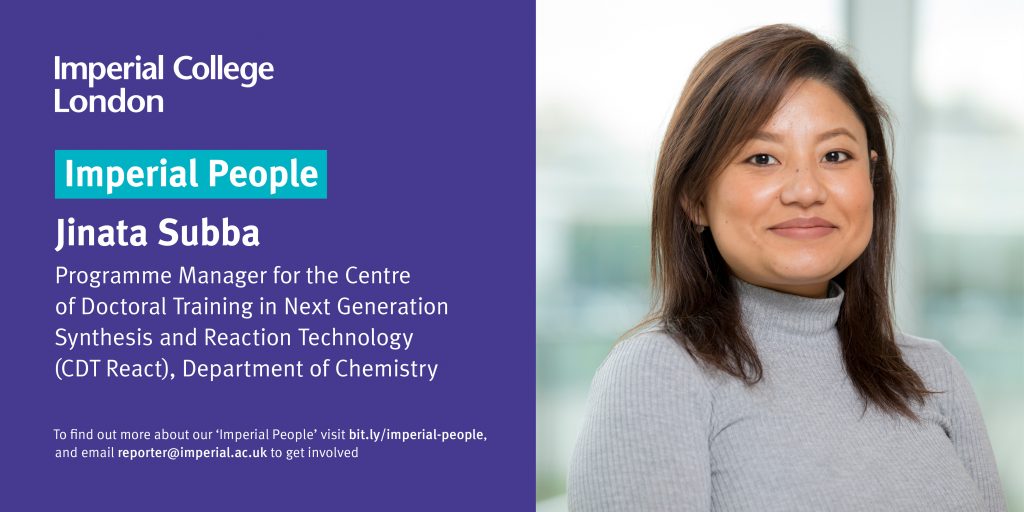“I’m proud of what we have achieved in the past year, in particular how we developed our recruitment process to improve our EDI statistics.”
“I’m the programme manager for the Centre of Doctoral Training in Next Generation Synthesis and Reaction Technology (CDT React) which opened in 2019. In addition to championing interdisciplinary projects, we actively collaborate with industrial partners to bring forth industrially relevant projects.
“Being a programme manager means that I’m a jack of all trades and the master of them all too. I’m responsible for organising the CDT React’s programme to accommodate around 12 studentship projects each year (we will take on 60 overall) to focus on future research challenges across chemistry, chemical engineering and data science. I also oversee the development of the programme to ensure that we effectively build our researchers’ professional skills e.g. research communications and research ethics. Finally I oversee the research strategy which involves communicating with our external and industry advisory boards.
“Previously, I carried out similar roles in two Imperial-based British Heart Foundation Centres (Research Excellence and Regenerative Medicine) and in the Institute of Epidemiology and Healthcare at University College London.
“I’m proud of what we have achieved in the past year, how we developed our recruitment process to improve our EDI statistics. We have significantly widened participation with a new protocol, which works to remove biases and involves our scientific panel to add objective layers to the recruitment process. Our successful approach is now being adopted by other similar programmes across the College.
“It’s been difficult not to feel a little bit helpless through this unique time. Although lockdowns and other restrictions have had an impact on programme, we have adapted well to help our students manage new ways of working, feel more involved and less isolated and anxious by making ad hoc provisions to accommodate their mental wellbeing. This I’m most proud of.
“Personally, the past year has been a bit of a whirlwind. I learned new skills, adapted to new ways of working, kept busy with projects, overcrowded my flat with plants, tasked myself with complicated recipes and like everyone else – I walked. A Lot. With things opening up and life returning to normal, I’m keen to develop the programme further but also bring the cohorts together for some much-needed socialising.”
